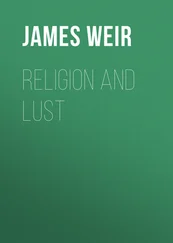James Walsh - Religion And Health
Здесь есть возможность читать онлайн «James Walsh - Religion And Health» — ознакомительный отрывок электронной книги совершенно бесплатно, а после прочтения отрывка купить полную версию. В некоторых случаях можно слушать аудио, скачать через торрент в формате fb2 и присутствует краткое содержание. Жанр: foreign_prose, foreign_religion, Здоровье, foreign_antique, на английском языке. Описание произведения, (предисловие) а так же отзывы посетителей доступны на портале библиотеки ЛибКат.
- Название:Religion And Health
- Автор:
- Жанр:
- Год:неизвестен
- ISBN:нет данных
- Рейтинг книги:4 / 5. Голосов: 1
-
Избранное:Добавить в избранное
- Отзывы:
-
Ваша оценка:
- 80
- 1
- 2
- 3
- 4
- 5
Religion And Health: краткое содержание, описание и аннотация
Предлагаем к чтению аннотацию, описание, краткое содержание или предисловие (зависит от того, что написал сам автор книги «Religion And Health»). Если вы не нашли необходимую информацию о книге — напишите в комментариях, мы постараемся отыскать её.
Religion And Health — читать онлайн ознакомительный отрывок
Ниже представлен текст книги, разбитый по страницам. Система сохранения места последней прочитанной страницы, позволяет с удобством читать онлайн бесплатно книгу «Religion And Health», без необходимости каждый раз заново искать на чём Вы остановились. Поставьте закладку, и сможете в любой момент перейти на страницу, на которой закончили чтение.
Интервал:
Закладка:
It must not be forgotten that strengthening of character, war's invariable effect on the man of moral aims, always diminishes the dreads of life. They mean ever so much not only for the development of the psychoneuroses and the whole domain of neurotic symptoms so common in our time, but also for the exaggeration of the symptoms of real physical disease which makes patients so uncomfortable, or full of complaints, and has led to so many useless operations in our generation.
Professor James even ventured to suggest that "the dread hammer (of war) is the welder of men into cohesive states, and nowhere but in such states can human nature adequately develop its capacity. The only alternative is degeneration." He adds that "the martial type of character can be bred without war", but only under very special circumstances and where men have been willing to give themselves up to a great cause. "Priests and medical men are in a fashion educated to it, and we should all feel some degree of it imperative if we were conscious of our work as an obligatory service to the State. We should be owned, as soldiers are by the army, and our pride would arise accordingly. We could be poor then without humiliation, as army officers now are."
Mr. H. G. Wells, in one of his paradoxical moods, has dwelt on how far the sacrifices needed for military life have lifted the life of the soldier above that of the civilian, in so far as its social value is concerned. "When the contemporary man steps from the street of clamorous insincere advertisement, push, adulteration, underselling and intermittent employment into the barrack-year, he steps on to a higher social plane, into an atmosphere of service and cooperation and of infinitely more honorable emulations. Here at least men are not flung out of employment to degenerate because there is no immediate work for them to do. They are fed and drilled and trained for better services. Here at least a man is supposed to win promotion by self-forgetfulness and not by self-seeking."
The war spirit with its necessary sacrifices serves to lift men above the dreads that wear away other lives and makes it very clear what the spirit of whole-hearted sacrifice can accomplish in keeping life from being disturbed by fear thoughts of many kinds. It might possibly be thought that the supreme call made upon nature's power to overcome such dreads, when combined with the extreme physical efforts that war often calls for and the draft upon nature's resources that the healing of wounds demands, would surely shorten the lives of military men, and that soldiers and officers, but above all these latter, would have on the average much less expectancy of life than the rest of mankind. Apart from actual fatal wounds, this is not true, however, but on the contrary men who have suffered severely from wounds, who have been placed under heavy burdens of responsibility and have gone through trials that would seem calculated to exhaust nature's powers, have lived far beyond the average length of life and even long beyond the vast majority of men. Lord Roberts, wounded over and over again, once shot almost to pieces, getting his Victoria Cross for bravery of the highest type, lived, still active, well past eighty and died from pneumonia behind the lines in the Great War quite as any man of the generation after his might have done. Sir Evelyn Wood is another typical instance of this living well beyond eighty in the enjoyment of health and strength and power to be of use to his country.
The spirit of sacrifice for a great patriotic purpose is like the spirit of sacrifice from religious motives which blesses while it furnishes the highest satisfactions that can come to a man. If men and women could be brought to exercise from religious motives in time of peace as much of the spirit of sacrifice as they do for war and patriotism, the world would be a very wonderful place in which to live. As it is, there are a great many who do so and whose lives have become veritable blessings for others and yet sources of supreme satisfaction to themselves. Their thoroughgoing faith and trust are examples to others that make life not only ever so much easier in the midst of hardships, but that give a new depth to the belief in immortality, because these others whose lives are so admirable have such a supreme faith in it that they direct all their actions to its reflection. As Professor Osler said in delivering the Ingersoll lecture on immortality at Harvard, a great many of us believe because there are around us persons, often those whom we love dearly, whose lives and faith mean so much to us that their confidence in immortality is imparted to us.
Religion is above all the motive of sacrifice that makes life more efficient and is productive of the healthy mind in the healthy body. It has quite equaled war in this regard, and the lives of missionaries, when lived under the most difficult circumstances, have often lasted long beyond even the Psalmist's limit of three-score years and ten. I have in mind as I write a dear old missionary who is still with us who spent twenty years with the Nez Percés Indians in the distant West, sharing all the hardships of the tribe and yet accomplishing very little in the matter of winning them to Christianity until at the end of that long time his leg was broken by a fall. The manly, uncomplaining courage with which he bore the accident won the hearts of the warriors, and they were ready to become Christians and to follow whole-heartedly the principles of religion which could make a white man so completely a man in every sense of the word as they had found their missionary. His health in the midst of all this had been excellent, and he is now in Alaska, past eighty, standing the climate and the trials of that country.
It is surprising how weak women, in the spirit of religious sacrifice, accomplish what seems almost the impossible and actually live healthier lives after they have given up everything and there is nothing more for them to dread. We have all heard of the story of Father Damien who so bravely went to Molokai in order to care for the lepers, but how many know that religious women have offered themselves for similar purposes, and not only at Molokai but at Tracadie in Canada and in Louisiana have given themselves up for life to the care of lepers? I know from records that some of these women, after having made the supreme sacrifice, were actually better in health living among the lepers than they had been when apparently living under much more favorable circumstances in their city homes. Some of them have lived to be very old, and none of them have contracted the disease. The story of such a striking personal sacrifice as that of Father Damien among the lepers at Molokai, crowned by years of suffering and death, attracts sensational attention, but it must not be forgotten that he is only one of many who have given up all in similar spirit. There were many like him, though utterly unknown to the world, who in China, in distant India, in Central Africa, or among the Indians in our own country, have sacrificed everything that the world deems most satisfying just to give themselves to the care of their savage brothers. I shall never forget dropping off years ago one day in the West at the then little station of Missoula in Montana to meet an old teacher of mine who had been famous for his knowledge of Greek and of the Aristotelian philosophy and who was then engaged in taking care of Indians, where none of these special intellectual acquirements were of any service, but where his hearty good cheer made him the best of missionaries. He had made his sacrifice; he said there were plenty of others who could do the teaching of Greek and philosophy, and he felt the call to do something for others who needed his personal services. He was in better health than he had been in years and in better spirits, and there was a look about him which indicated that some of the hundred-fold promised to those who give to the Lord was already coming back to him.
Читать дальшеИнтервал:
Закладка:
Похожие книги на «Religion And Health»
Представляем Вашему вниманию похожие книги на «Religion And Health» списком для выбора. Мы отобрали схожую по названию и смыслу литературу в надежде предоставить читателям больше вариантов отыскать новые, интересные, ещё непрочитанные произведения.
Обсуждение, отзывы о книге «Religion And Health» и просто собственные мнения читателей. Оставьте ваши комментарии, напишите, что Вы думаете о произведении, его смысле или главных героях. Укажите что конкретно понравилось, а что нет, и почему Вы так считаете.












